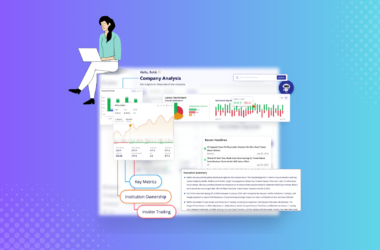Overview: This report provides a high-level overview of how Photon Insights can unearth early signs to mitigate disasters for your firm! In particular, we explore the Wells Fargo account fraud scandal (costing them nearly $3 billion dollars), and how signs were evident years before everything came to the public light.
From 2002 up until 2016, Wells Fargo put immense sales pressure on its employees, encouraging and causing workers to create millions of fraudulent savings and checking accounts on behalf of Wells Fargo clients without their consent. News of the fraud became widely known in late 2016 after various regulatory bodies, including the Consumer Financial Protection Bureau (CFPB), fined the company a combined $185 million as a result of the illegal activity. The company faced additional civil and criminal suits reaching an estimated $2.7 billion by the end of 2018. The creation of these fake accounts continues to have legal and financial ramifications for Wells Fargo to this day, as well as the immense (likely irreparable) reputational damages and breach of trust.
With billions of dollars at stake, and this scandal taking place over so many years, could we have preemptively determined something was amiss? Many indicators were certainly there, surfaced by Photon Insights – we collected data in 2013, and below are AI generated insights (combining the viewpoints of thousands of employees, based off of data from Indeed, Glassdoor, etc.) which were flagged by our sentiment and anomaly detection algorithms, just to list a few (there were many more!) …
- Jan 16, 2013: Great hands-on training, great pay and incentive program. Great first restaurant job. Bad training. Bad location. No consistency. Not worth your time to work there. Very high turnover. All about money – did not care about employees or customers. Very unethical. The best part of the job was working at the bank.
- Mar 5, 2013: Really bad management cares more about bottom line than meeting customer needs. They oversell products that don’t fit client needs. If you get a manager that doesn’t like you best resign because you will never grow. Personal Banker – Learned to maintain proper customer checking balances.
- Mar 12, 2013: Wells Fargo treats employees with no dignity or respect. Unethical sales practices are in a class of their own. The bank treats their employees like second class citizens and customers like second-class citizens. The supporting staff is great but the company is not great in Kennesaw. Fast pace. Management and pay.
- May 8, 2013: Wells Fargo has a culture of fear, the fear of employees, says ex-employee. Bank hours are off by 2 on Saturdays and every Sunday off. Good benefits but no work/life balance. Mortgage fraud is alive and well at the company. Wells Fargo only cares about their sales.
- Jul 26, 2013: Ehhh. I didn’t like the attitude of my manager, he couldn’t multitask and his temper would get the best of him. The sales were crazy and unethical. Selling credit cards to people who didn’t even qualify for them. Always short staffed and had to take on a workload of three people.
- Sep 10, 2013: Stressed. Underpaid, customers get fees from every direction. Management is the bullying kind. Will threaten to fire you in front of other co workers. Poor moral they push sales on customers who don’t need it. Horrible work environment. Back-stabber who gossiped about everyone.
- Oct 6, 2013: Wells Fargo has low pay and low work/life balance. 30 bankers were recently let go over unethical sales practices. I worked as a phone banker for Wells Fargo and loved my coworkers. The bank has unrealistic sales expectations for every employee. Okay place to work, but no benefits and long hours.
Clearly evident from the selected Photon Insights, the signs of the unethical sales were highly prevelant through employee sentiment – Wells Fargo were likely privy to these practices, but from the perspective of federal regulators (or investors/shareholders, etc.), such information provided a sign that not all was ok, years before the massive penalties!




